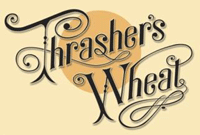Protesters dissect Neil Young’s new album of protest songs
Neil Young’s first album with Crazy Horse in nine years – Protesters dissect Neil Young’s new album of protest songs
Ben Kaplan Jun 4, 2012 – 4:16 PM ET
Illustration by Mike Faille, from Kiim Kong photo
Americana, Neil Young’s first album with Crazy Horse in nine years, is a collection of classic folk covers that describes an outsider’s America populated with travellers searching for the idea of a country they can’t find.
The activists listening to Neil Young’s new protest album think, by and large, the protests don’t go far enough. The album’s called Americana, it’s Young’s first with Crazy Horse in nine years and the songs — 11 classic folk covers such as This Land is Your Land and Travel On — describe an outsider’s America populated with death-row inmates, share croppers and out-of-sorts travellers searching for the idea of a country they can’t find.
“Living with War, which had Let’s Impeach the President, now that was a protest record,” says Ryan Peck, executive director of HIV & AIDS Legal Clinic Ontario, and host of our listening session this past Friday. “Here’s this Canadian reminding Americans what they’re really about — the good America, which of course is the idea of freedom.”
Young’s new record is above all else a Crazy Horse album, which means almost every tune contains a crunchy wall of harmony, wallop, feedback and guitar. Opening with Oh Susanna, a minstrel tune from the 1840s, and then bleeding into a threatening-sounding Clementine (a reworking of Oh My Darling, Clementine), the record doesn’t barnstorm so much as strike a note of curiosity.
“This is a song people thought was dead and buried. Something so stupid it was generally assumed no one would ever sing it again,” Kenneth Hale, director of Advocacy and Legal Services for Tenants Ontario, says of Clementine. The song, written during the California Gold Rush of 1848, is about the drowned daughter of a miner who takes up with his lover’s kid sister.
“Neil had an album called Freedom,” continues Hale, “but I still see him as a song-and-dance man.”
Covering folk tunes has been a fruitful pastime for aging lefties. In 1992, Bob Dylan released Good As I Been to You, an album of rearranged call-to-arms songs, and the record was widely seen as fuel for the re-emergence still driving him forward today. Likewise, Bruce Springsteen made The Seeger Sessions in 2006, which was sandwiched between the lesser albums Magic (2007) and Devils & Dust (2005).
This record’s a bunch of angry hippies in their garage playing songs that they loved when they were four
For Young, Americana follows Le Noise, which scored the 66-year-old a Grammy Award for best rock song in 2011. Clearly, this record is a chance for Young to flaunt his influences and make a statement, something achieved on the album’s wild version of the Silhouettes’ Get a Job, a ’50s-era ditty about joblessness.
“In an era of massive unemployment, Get a Job speaks to a reality that so many people are facing and it’s what every activist hears when we’re out on the streets with a picket sign,” says Yutaka Dirks, who contributes to the new book Beautiful Trouble: A Toolbox for Revolution. “Many of us do have work, and we’re often out on the streets protesting the loss of good, stable, union jobs. You have to let the insult slide off your back.”
Crazy Horse, whose members backed Young on his first solo album, is a band best known for their thunder, but when the group formed in 1963, they were an a capella doo wop group in Los Angeles. It’s not lost on our activists that the band’s named for a Native American hero who went to war against the United States.
“Neil’s the kind of hippie who mixes his marijuana with tequila,” says Peck, “and this record’s a bunch of angry hippies in their garage playing songs that they loved when they were four.”
On Americana, the Crazy Horse harmonies stand out almost as much as their guitar sludge, and Woody Guthrie’s This Land is Your Land, perhaps the ultimate folk song, steers the album back into political territory. Young’s version also contains the oft-deleted lyrics that address the country’s property laws.
“Given the Occupy movement, I think he’s explicitly addressing inequality,” Dirks says. “This record’s about using music to keep hope. It’s saying, collectively, ‘We all have a voice.’ ”
In the end, the new Young album is modestly activist-approved, catchy and a tip-of-the-hat to the bygone days of America’s ragged early years, which seem to be resurfacing now. Young’s 35th solo album concludes with God Save the Queen, the British national anthem, which fades into America the Beautiful and a children’s choir for its final note.
“If this is a political record, it’s a subtle political record, but I like what Neil does to these songs,” Peck says. “In a way, he does sort of what lawyers do — we slightly change the law and adapt them slowly to the times.”
Americana by Neil Young is available June 5 from Warner Music.
____________________
thanks go to sharry w.








